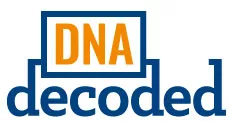If I were able to achieve the things that I dream about, our kids would be able to go to school, learn their language, be taught by native teachers, and have all those people leading in different type of learning environment that isn't just putting culture into a scope and sequence curriculum. I hope they can graduate schools and be fluent in tribal governments, tribal language, tribal history, tribal art, and they can confidently move into the future knowing that they're not a stereotype. That's what I hope happens eventually for future generations.
I started my career as a social studies teacher in a high school in the Kansas City area. I started to realize that my professional and my personal lives of being connected with the Osage community and the Osage Nation … were disconnected. American Indians like me, a lot of American Indians are from multiracial families. I could be named, raised in ceremonies, but then suddenly, I got kids teasing me. They're like, ‘You're not really Indian.’
So, I started doing advocacy work for indigenous education and directing all my studies and energy towards studying and really coming to understand indigenous versions of education.
As we formed the Kansas Association for Native American Education and built relationships and started connecting people across institutions, we started to recognize we have this issue with how American Indians are represented in Kansas classrooms.
Eighty-seven percent of social study standards across the United States about American Indians are situated in pre-1900 context. I had somebody one time say, ‘Oh, I thought the Osage were extinct.’ They didn't learn about American Indians as contemporary people in the present. They didn’t’ learn about them as doctors and lawyers or chemists, and so, they don't know how to situate that. That's a learning systems problem.
We're also trying to advocate for tuition. If we think about all the land based and all the tribes that moved through Kansas because they were forced to give up their land, why are we charging out-of-state tuition to attend Kansas State University? So, we've made some ground on getting in-state tuition and hopefully eventually free tuition.
How you lead indigenous education is … everything's personal. It's all about relationships and how you build those relationships. People leading those systems are often in a position of learning, and so the more you can help them understand and learn by speaking your truth, the more likely they are to actually start modifying the norms in their system to help tribes reach their goals for culture and language revitalization.


